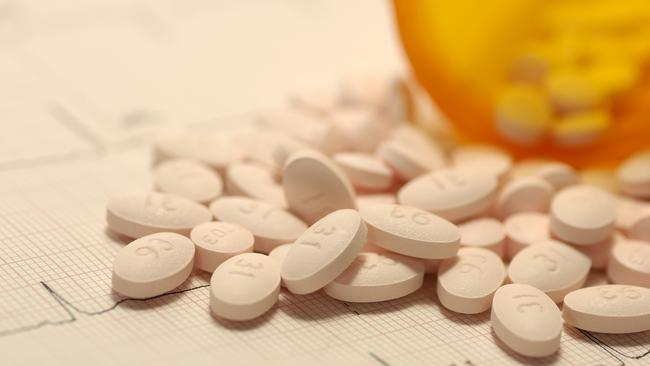Super drug a breakthrough for heart conditions
An experimental drug has shown remarkable results in lowering bad cholesterol bringing new hope for potentially fatal heart conditions.

Victoria
Don't miss out on the headlines from Victoria. Followed categories will be added to My News.
An experimental wonder drug has been able to halve levels of bad cholesterol in the hardest to treat patients, significantly reducing their risk of heart disease and stroke.
Findings ways to boost the effectiveness of existing cholesterol-lowering medications, called statins, and to provide alternatives for the large number of patients who cannot tolerate them, is one of the most pressing concerns in cardiology, given their strong link to triggering potentially fatal or disabling cardiovascular events.
Following results from the clinical trial in American patients, led by researchers from Monash University and the Victorian Heart Institute, the medication, called obicetrapib, will be tested in Victorian patients alongside existing medications next year.
Lead researcher Professor Stephen Nicholls said despite 1.5 million Australians living with high cholesterol, statins did not work for everyone.

“When statins came along in the early ’90s there was this view that they were going to fix all the cholesterol problems. It turned out that wasn’t the case,” Prof Nicholls said.
“In about half of patients we get their cholesterol levels down to where we need to get to with current medications.
“But some people can’t tolerate a statin, and others can’t get to a level of cholesterol we want them to get to, even if they can tolerate the medication.
“It means that half the patients who have had a heart attack are walking around with cholesterol levels that are unacceptably high for them. We need new medications to either use when we can’t use the exiting medications or potentially in addition to the existing medications.”
When tested in 120 patients, with an average age of 60, and who were already on existing statins, the experimental drug could reduce levels of bad cholesterol by 50 per cent.
The drug, which works by blocking a mechanism that turns good cholesterol into bad in the bloodstream, was almost destined for the scrap heap after disappointing results in earlier trials using previous iterations of the medication.
The results of the phase 2 study were presented at the American Heart Association Scientific Session.
“We think that’s very significant result,” Prof Nicholls said.
‘If you could have that on top of a statin, which can halve bad cholesterol, suddenly you’ve got the ability to lower somebody’s bad cholesterol levels by 75-80 per cent, which would make a huge difference in terms of lowering the risk of heart attack, stroke or needing a stent.
“We need to test this in larger studies, but the most important thing this does is it gives choices to patients.
“Now we will have more options to treat more patients.”



